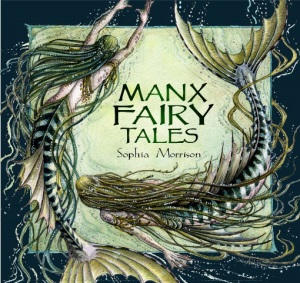
This outstanding collection of stories, initially published in 1911, has lost none of its original appeal, with its reissue by Lily Publications bringing these thought-provoking tales to a new audience.
Earlier editions were presented in a much simpler style, but with the assistance of Manx Gaelic speaker Bob Carswell, Island based illustrator Julia Ashby Smyth and the Manx Heritage Foundation, these stories have been developed into an eye-catching and memorable book.
These classic tales are testimony to Sophia’s work, and introduces readers to some of the great characters from Manx mythology by using stories with a prophetic or moralistic tone.
Incorporating familiar place-names with copious amounts of humour and drama, this selection of wide-ranging stories has been edited by Bob Carswell, offering a contemporary feel to this well-presented hard back edition.